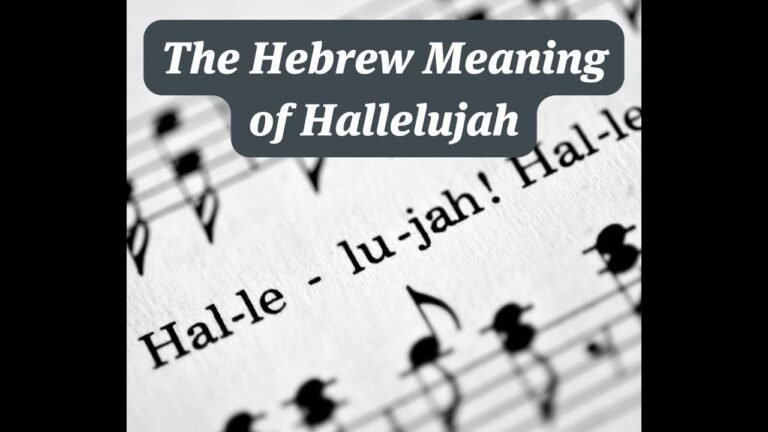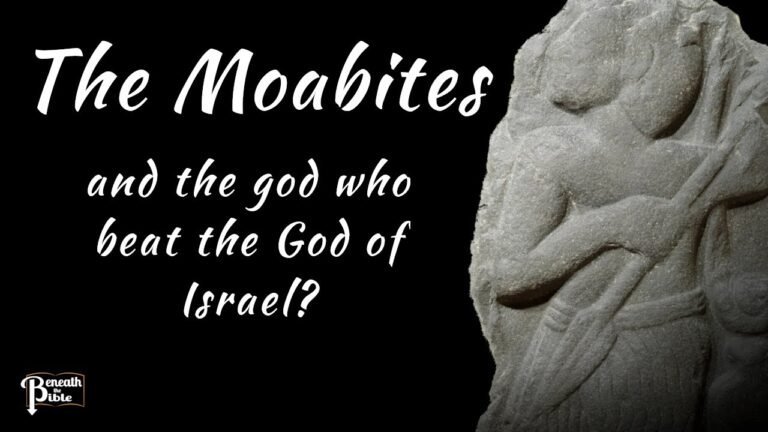Understanding the Definition of Hallelujah
The term hallelujah has transcended its biblical roots to become a universal expression of joy and praise. Derived from the Hebrew words hallel, meaning to praise, and Yah, a shortened form of Yahweh, it encapsulates a profound sense of celebration and reverence. In both religious and secular contexts, the definition of hallelujah resonates with moments of triumph, gratitude, and spiritual connection, making it a powerful word that continues to inspire and uplift people across cultures and generations.
What is the literal meaning of hallelujah?
The term “hallelujah” literally means “praise Jah” or “praise the Lord,” reflecting a profound expression of joy and worship. Derived from the Hebrew word “halel,” which denotes joyous praise, it signifies not just an utterance but a heartfelt celebration of faith. This powerful word encapsulates the spirit of exultation and gratitude towards the divine.
Moreover, the latter part of “hallelujah,” known as “Yah,” is a shortened form of YHWH, representing God’s name in various religious contexts. Together, they form a compelling declaration that resonates through countless hymns and spiritual songs, inviting believers to lift their voices in unified adoration. In essence, “hallelujah” serves as a timeless reminder of the joy found in praise and the connection between humanity and the divine.
What is the meaning of the slang term hallelujah?
Hallelujah has evolved beyond its traditional roots, becoming a vibrant expression of joy and gratitude in everyday conversation. This slang captures a moment of emotional release, often punctuating experiences where relief or happiness is felt deeply. It reflects a sense of triumph, particularly when circumstances take a favorable turn against the odds.
In informal settings, using “hallelujah” can inject humor and enthusiasm into discussions. It’s the perfect exclamation to highlight unexpected good news, making it a favorite among friends and social circles. For instance, when someone finally achieves a long-awaited goal or a seemingly impossible situation resolves itself, this word encapsulates the collective joy of those involved.
Ultimately, hallelujah serves as a delightful reminder of life’s pleasant surprises and the gratitude we feel when things go right. Whether celebrating a friend’s new relationship or acknowledging a personal victory, this term resonates with a universal sense of positivity, making it a cherished part of contemporary language.
What does the name hallelujah mean?
Hallelujah, a name steeped in rich history, translates to “greatly praised” and boasts Hebrew roots. This elegant feminine name carries a profound significance, embodying a spirit of reverence and appreciation that resonates through time.
Often used as an exclamation of joy or gratitude, Hallelujah encapsulates a powerful expression directed toward the divine. Whether in moments of personal triumph or communal celebrations, this name serves as a reminder of the beauty found in gratitude and the uplifting power of praise.
Exploring the Roots and Meaning of Praise
Praise is a universal expression that transcends cultures and languages, serving as a vital component of human interaction. At its core, praise acknowledges and celebrates the positive qualities, achievements, or efforts of individuals or groups. This act not only uplifts the recipient but also fosters an environment of gratitude and positivity, reinforcing social bonds and encouraging further acts of kindness and excellence.
The roots of praise can be traced back to ancient societies, where it often held significant importance in rituals and communal gatherings. In these settings, praise was used to honor achievements, express admiration, and strengthen community ties. Over time, this ritualistic form of acknowledgment has evolved, yet its fundamental purpose remains the same: to recognize and validate the contributions of others, creating a culture of appreciation that nurtures growth and inspiration.
Understanding the meaning of praise deepens its impact, revealing its potential to transform lives. When we offer genuine praise, we tap into the emotional well-being of others, boosting their confidence and motivating them to strive for their best. In a world where negativity often prevails, celebrating achievements—big or small—becomes essential. By exploring and embracing the roots and implications of praise, we can cultivate a more positive and connected society, one acknowledgment at a time.
The Spiritual Significance Behind Hallelujah
The term “Hallelujah” transcends mere expression, resonating deeply within various spiritual traditions as a powerful proclamation of joy and gratitude. Rooted in Hebrew, it translates to “praise the Lord,” serving as a bridge between the divine and the human experience. This word has found its place in sacred texts, hymns, and contemporary music, embodying a universal longing for connection with the divine. Each utterance of “Hallelujah” becomes a moment of reflection, inviting individuals to recognize the beauty and wonder that life offers, even amidst challenges.
In many cultures, the use of “Hallelujah” extends beyond worship, acting as a communal rallying cry that fosters unity and hope. Its melodic qualities and emotional weight evoke a sense of liberation, allowing people to express their innermost feelings of gratitude and reverence. Whether in the context of celebration or solace, the spiritual significance of “Hallelujah” lies in its ability to elevate the human spirit, reminding us of our shared journey and the profound connections that bind us to one another and to the sacred.
Unpacking the Joyful Exclamation of Faith
Faith often finds its most vibrant expression in the joyful exclamation that springs from the heart. This spontaneous burst of enthusiasm reflects a deep connection with the divine, transcending mere belief to embrace a profound sense of purpose and belonging. In moments of gratitude, prayer, or communal worship, the soul resonates with a celebration of life, infusing ordinary experiences with extraordinary meaning. This joyful exclamation serves as a reminder of the beauty and hope inherent in faith, inspiring individuals to share their light and uplift those around them, creating a ripple effect of positivity and connection in the world.
Understanding the definition of hallelujah goes beyond mere words; it encapsulates a profound expression of joy, gratitude, and spiritual connection. This powerful term resonates across cultures and religions, uniting people in their shared experiences of reverence and celebration. Embracing the essence of hallelujah invites us to appreciate the beauty in our lives and encourages a deeper exploration of our beliefs and emotions, reminding us of the power of collective praise in the human experience.







